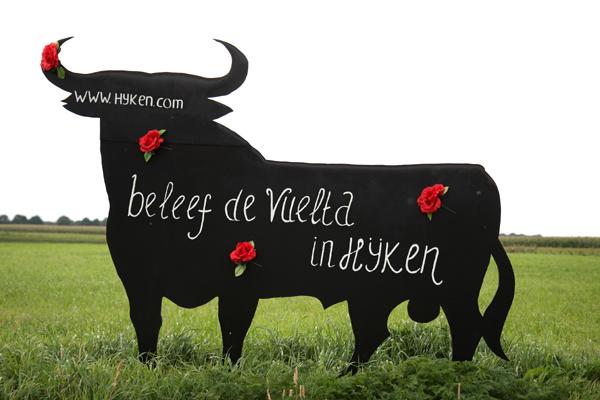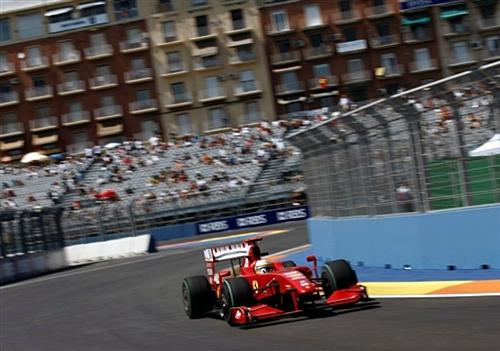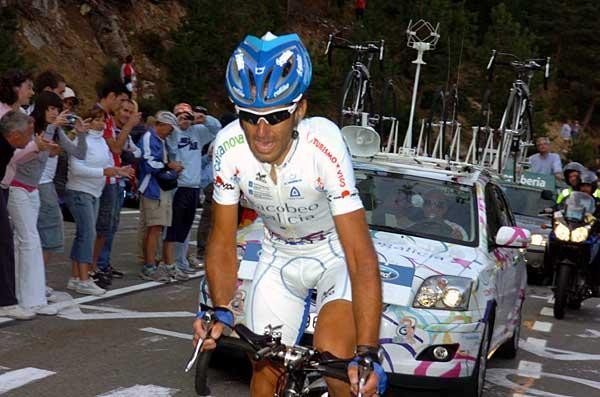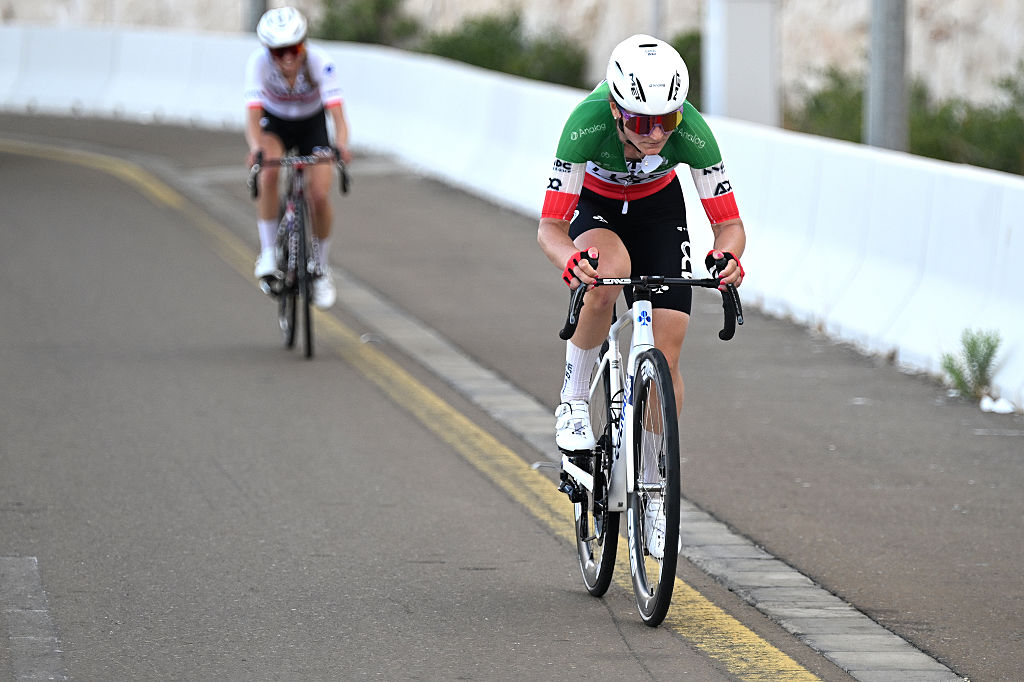Venga, Venga Vuelta!
Balanced course and strong field add up to a special edition
The latest race content, interviews, features, reviews and expert buying guides, direct to your inbox!
You are now subscribed
Your newsletter sign-up was successful
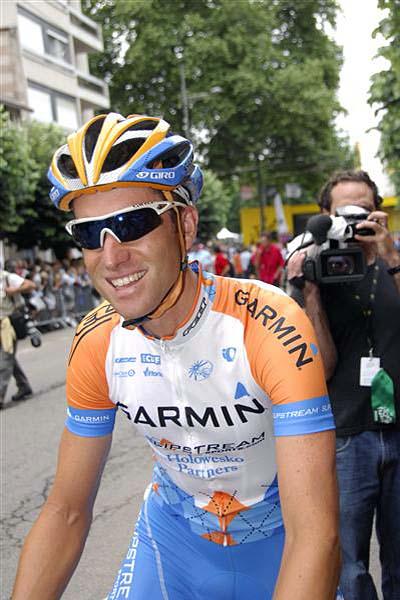
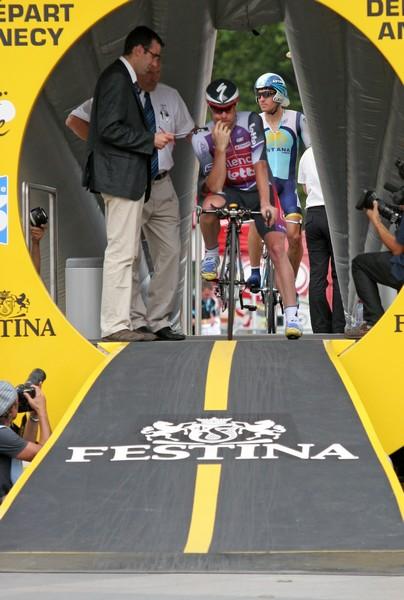
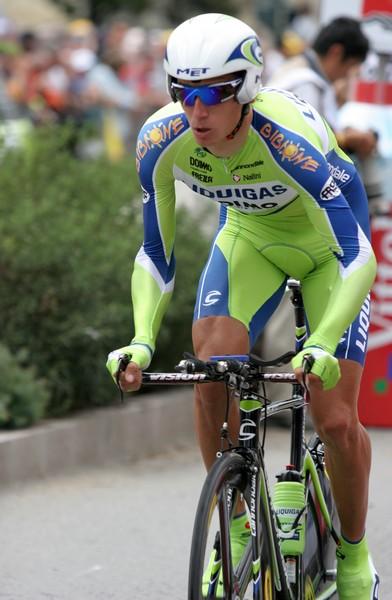
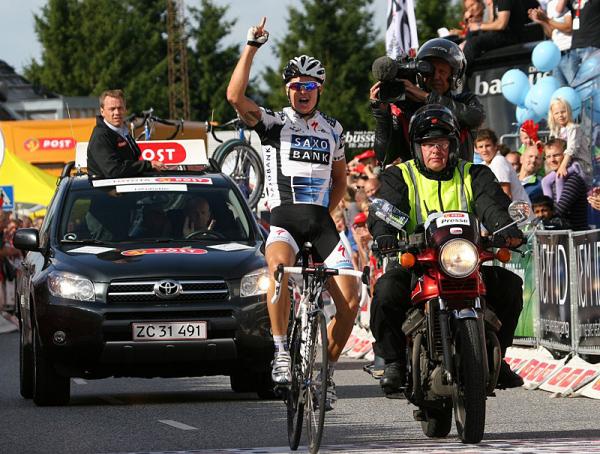
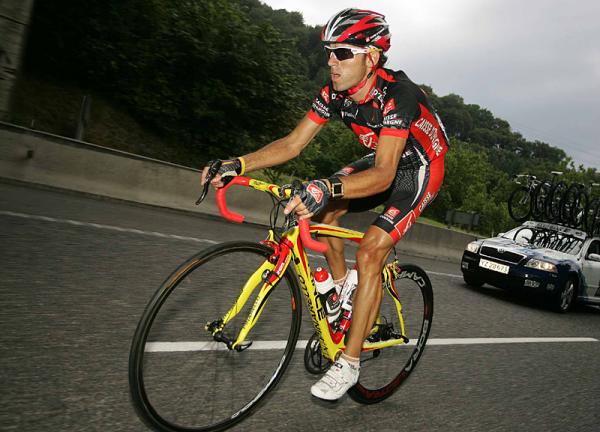
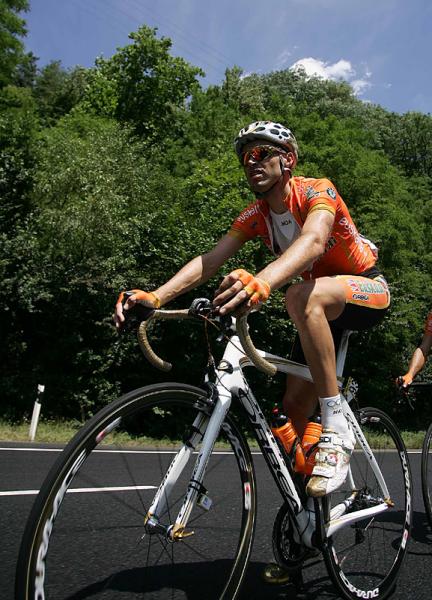
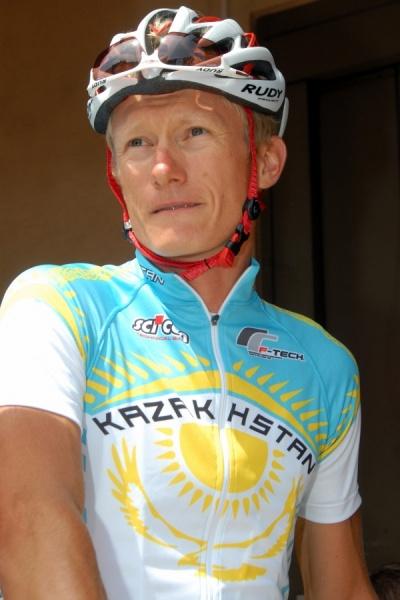
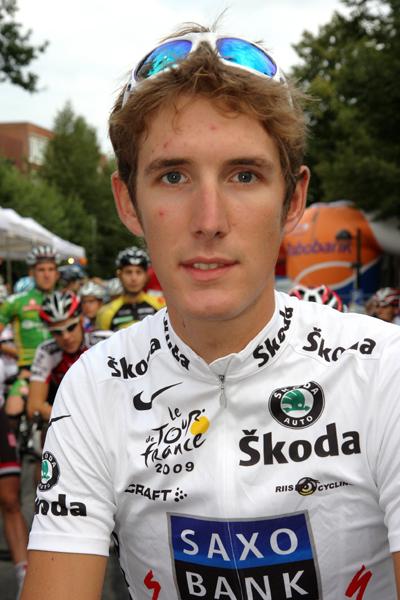
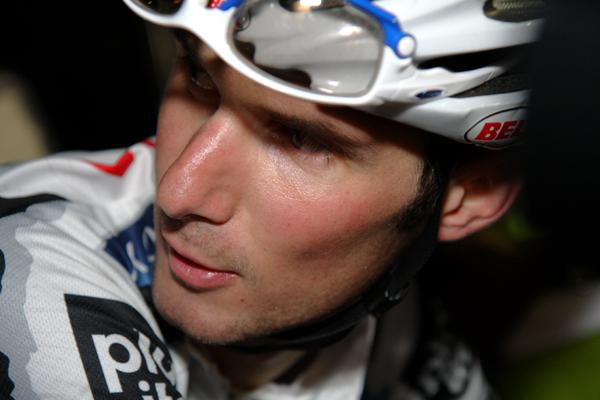
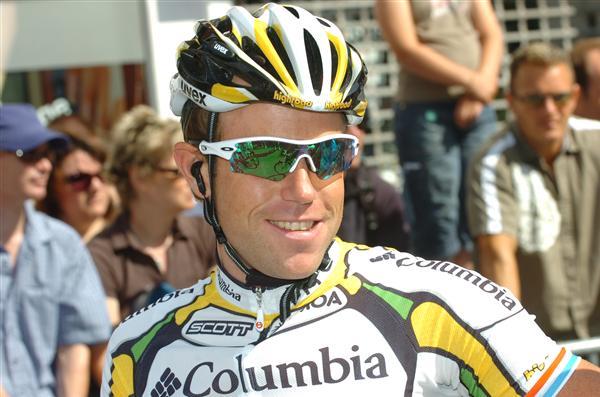
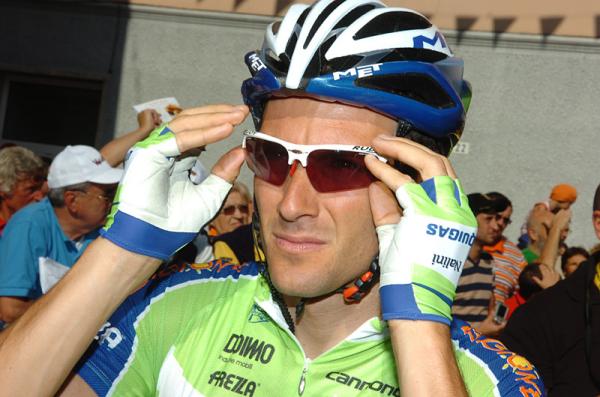
Time is a tickin', and the seconds are counting down until the 64th Vuelta a España gets going this Saturday in Assen, the Netherlands. It's the first time the race has started outside the Iberian peninsula and the organisers hope that this will add a bit of 'orange zest' to an event that occasionally lacks a bit of the 'X Factor'.
This year, anticipation is higher thanks to an impressive lineup. With names such as Evans, Valverde, Basso, Vande Velde, Kreuziger, Gesink, Kirchen, Fuglsang plus the two Schlecks all on the start list, there are expectations of a real ding-dong in the weeks ahead. Factor in the participation of cycling's bad boy Alexandre Vinokourov, a born attacker, and there's grounds to believe that this year's edition should be one of the best in recent years.
The race gets underway a matter of days from now when the riders hurtle around a 4.5km course on the renowned motorcycle racing circuit in Assen. Fast and furious, the flat parcours will suit Fabian Cancellara (Saxo Bank) perfectly, and should hand the Olympic champion the first maillot oro of the race.
Stages two and three travel 203.7km and 189.7km to Emmen and Venlo, respectively. The first of these is completely flat, with less than a 10 metre variation between the start elevation and the highest point, which should produce a big bunch sprint. It's more of the same the following day, the stage dipping into Germany before veering back into the Netherlands, the parcours including two uncategorised climbs.
The hombres fuertes of the peloton have a more favourable ride in store on the following stage, with the 225.5km leg to Lieja (Liège) in Belgium much more conducive to breakaways. A series of climbs - including two ascents of the Cauberg, well known from the Amstel Gold - plus St. Nicolas, renowned from the finale of Liège-Bastogne-Liège - should favour the classic specialists like Philippe Gilbert (Silence Lotto) and Damiano Cunego (Lampre).
A very early rest day permits the riders to fly to Spain in advance of a lumpy 174km leg from Tarragona to Vinaros. This features the Alto de La Ermita hill 6km from the finish and could see the sprinters thwarted. The same applies on the following day's 176.8km leg that begins and ends in Xativa, where another unclassified ramp towards the finish will jazz things up.
Time trialists will come to the fore again on a very flat 30km stage seven, which once again sees a race against the clock being fought out on a motor racing circuit. This time the Formula One track in Valencia (pictured below) is the setting for the speed merchants, who have one last chance of the maillot oro before the mountains rear up on the following day's savagely tough 204.7km leg. This saw-toothed stage is peppered with seven second and third-category climbs before the 22km 'especial' (hors categorie) grind up the Alto de Aitana, which has previously been the stage for victories by Klaus Moller and Leonardo Piepoli.
The latest race content, interviews, features, reviews and expert buying guides, direct to your inbox!
Another summit finish follows on the ninth stage from Alcoi to Xorret del Cati; this climb is short, just over three kilometres, but averages nine percent and includes sections of 20 percent. Valverde should thrive here.
The sprinters can re-enter the fray on stage 10, which travels 169 mainly-flat kilometres from Alicante to Murcia and finishes on the Avenida Miguel Indurian. Mario Cipollini won here in 2002. It's possible that they will once again be the main players on the 11th stage, but must get over the first category Collado Bermejo early on. Dave Zabriskie was the last winner in Caravace de la Cruz, back in 2004.
That stage is the halfway point of this year's edition and is followed on September 10 by the second rest day. It's a temporary respite before the race becomes even more savage; the 12th stage is the first of three successive days in the Andalucian mountains, and concludes on a new climb, the Aldo de Velefique. This is 13.3 kilometres long and boasts stretches of 13 percent gradient.
The offering on September 12 - stage 13 - also finishes with an 'especial'-category climb. The Alto de Sierra Nevada follows immediately after the first cat Alto de Monachil and, without a real descent in between, these final 26.2 clicks are almost completely uphill. Santi Perez won here in 2004, weeks before being busted for blood doping.
It's more of the same on stage 14, which starts in the historical city of Granada and travels 157km to the mountain top finish of the Alto Sierra de la Pandera. The third summit finish in a row precedes three flatter days that will play to either the sprinters or breakaway specialists; they kick off with a lumpy 167.7km race from Jaén to Cordoba, where Boonen won 12 months ago, an unchallenging 170.3km route to Puertollano and a slightly downhill 193.6km leg to Talavera de la Reina.
That brings the riders to the 18th stage and a return to hillier ground. The 165km leg to Avila is more difficult early on than in the finale, but the same can't be said of the following day's race to La Granja. Three first category climbs lie in wait along the 179.8km route prior to the drop down to the finish; those who are clear at the summit could well stay clear on the fast descent.
That's the final chance for climbers to take time; Saturday September 19th swings things back in favour of the time trialists, who have 27.8 kilometres in and around Toledo to work their magic, chase the stage win and scoop the leader's jersey. Whoever has it that evening is a shoo-in for the race win, as the following day's short and sweet 110.2km race into the heart of the Spanish capital will be more coronation than competition.
The Contenders
So who will challenge? Last year's champion Alberto Contador (Astana) is not taking part, and neither are the other two podium finishers, Levi Leiphimer (Astana) and Carlos Sastre (Saxo Bank). That leaves fourth-placed Ezequiel Mosquera as the best 2008 rider, and he'll front the Xacobeo Galicia squad dreaming big.
Mosquera (pictured during last year's Vuelta, below) is up against some of the biggest names in cycling though, including double Tour de France runner-up Cadel Evans (Silence Lotto), double Vuelta podium-finisher Alejandro Valverde (Caisse d'Epargne), Olympic road race champion Samuel Sanchez (Euskaltel Euskadi) and Ivan Basso (Liquigas) plus young hopes Robert Gesink (Rabobank), Roman Kreuziger (Liquigas) and Daniel Martin (Garmin Slipstream).
Others deserving a strong mention are Martin's team-mate Tom Danielson, Kim Kirchen (Columbia HTC), José Angel Marchante (Cervélo Test Team) and Chris Horner (Astana).
But it's the Saxo Bank team that appears to be the strongest collective in the race. Brothers Andy and Frank Schleck had a mightily impressive Tour de France, netting second and fifth overall, while Jakob Fuglsang's performances in the Dauphiné Libéré where he took sixth, plus wins in the Tour of Slovenia and the Tour of Denmark suggest that he could be a very strong ally in what will be his first Grand Tour. Cancellara, Alexandr Kolobnev, Stuart O'Grady, Karsen Kroon, Matti Breschel and Kurt Asle Arvesen are rock solid too, making a Schleck success very likely.
Vino's vengance
A second victory in Madrid would, in his own mind, be the perfect revenge for Alexandre Vinokourov. The Kazakhstani rider continues to insist he did not blood dope during the 2007 Tour de France, where he won two stages but was then disqualified for a homologous transfusion.
Many are sceptical of that claim but the 35-year-old is back and convinced that he remains a major player in cycling. He won a time trial in the recent Tour de l'Ain and was listed this week as part of Astana's team for the race. While he's been out of action for quite some time, he's been training hard and plans to target top results in both the Vuelta and the World Championships.
Vinokourov had a bust up with Astana manager Johan Bruyneel during this year's Tour de France, where the rider said at a press conference that the Belgian would have his marching orders if he did not accept him back onto the team. Up until a few days ago Vinokourov was only listed as a reserve but negotiations have been concluded, a compromise has been reached and he's back on the 'A list' for the race.
In 2006 he took his first and only Grand Tour in Spain, beating Alejandro Valverde by 1:12 and Andrey Kashechkin by precisely two minutes more. Three years later, two questions bear asking: Is he still competitive? Is he still welcome? The answers will become obvious in the days and weeks ahead.
